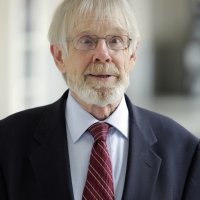Roundtable Discussion on the Future of U.S. Global Media
In any given week, from North Korea to Iran and across the Middle East, from China to Afghanistan, Pakistan and Myanmar, through Africa and India to Russia, Belarus, Central Asia and Cuba, 165 million people—equivalent to more than half the U.S. population—tune into the radio and television programs of U.S. International Broadcasting (USIB) by satellite, Internet and in some cases cooperating local radio stations. After more than half a century, Congressionally- funded U.S. broadcasting remains the leading edge of American soft power—the principal means by which the United States speaks directly to less free and impoverished nations.
Yet while the content and methods of delivering America’s 24/7 conversation with the world have kept abreast with the 21st century, Wilson Center Senior Scholar A. Ross Johnson and retired Director of Audience Research and Program Evaluation at Radio Free Europe/Radio Liberty R. Eugene Parta argue in their new HAPP Occasional Paper, "A 21st Century Vision for U.S. Global Media," the organization of U.S. International Broadcasting has not.
Using this Occasional Paper as a point of departure, the Wilson Center has organized this roundtable discussion on the future of U.S. global media. Expert panelists will include Tom Dine, former president of Radio Free Europe/Radio Liberty in Prague; D. Jeffrey Hirschberg, executive vice president of the Northeast MAGLEV and former governor of the US Broadcasting Board of Governors; A. Ross Johnson, Wilson Center senior scholar; R. Eugene Parta, retired director of audience research and program evaluation at Radio Free Europe/Radio Liberty; and Sanford J. Ungar, president of Goucher College and former director of Voice of America.
John Milewski, host of the Wilson Center's Dialogue Radio & Television will chair the event.
Speakers

Senior Adviser, Radio Free Europe/Radio Liberty; former Director, Radio Free Europe

Hosted By

History and Public Policy Program
A global leader in making key archival records accessible and fostering informed analysis, discussion, and debate on foreign policy, past and present. Read more


Cold War International History Project
The Cold War International History Project supports the full and prompt release of historical materials by governments on all sides of the Cold War. Read more
